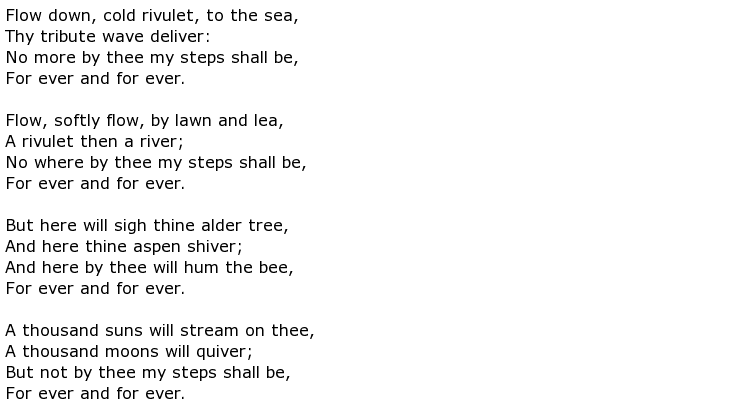 What do William Blake, Percy Bysshe Shelley, Emily Dickinson, Sara Teasdale, and Carl Sandburg all have in common? If you guessed that they were all famous poets, then you are half-correct; while they were indeed all poets, they were also poets who often expressed their ideas in short poems – poems that while small in length have huge reputations.
What do William Blake, Percy Bysshe Shelley, Emily Dickinson, Sara Teasdale, and Carl Sandburg all have in common? If you guessed that they were all famous poets, then you are half-correct; while they were indeed all poets, they were also poets who often expressed their ideas in short poems – poems that while small in length have huge reputations.
While they often do not get the respect that long, epic poems do, it is just as often that case that short poems loom larger in the memory. It may be possible to memorize the many stanzas of Alfred Lord Tennyson‘s “In Memoriam,” once is more likely to commit the much shorter – but no less impressive – “A Farewell” to memory.
At their best, short poems distill a concept or idea into a few lines that speak volumes. To return to Tennyson, consider this comparison of “In Memoriam” and “A Farewell,” two poems that speak to Tennyson’s experience of loss.
First, a few stanzas of “In Memoriam:”

While these few stanzas certainly convey Tennyson’s sentiments, the entire poem consists of more than 100 of these four-line stanzas – an epic by any estimation! Although no one would dispute the quality of “In Memoriam,” few aside from English majors would have the desire or compulsion to read the entire work.
“A Farewell,” however, expresses the same concept of “In Memoriam,” but does so in a mere 16 lines:

In only 16 lines, Tennyson expresses the finality and infinity of death just as completely as he did in the 19,238(!) words used in “In Memoriam.”
Although many poets – Tennyson included – choose to write longer, epic poems, there are those who choose to write exclusively short poems. One of these poets was Emily Dickinson.
Other poets may have written longer, more languishing poems than Dickinson’s “Heart, We Will Forget Him,” but few have captured the amount of emotion and depth in a few short lines as Dickinson did in this poem:

Few of Dickinson’s poems are longer than two more maybe three stanzas of four lines each, yet she commands a reputation as one of the greatest poets of the English language.
Short poems lend themselves to many emotions and forms. Whether limericks, haikus, or just abbreviated stanzas, short poems are often as complex and evocative as much longer poems, staying in the reader’s mind forever.


Comments3
All the peom's are dame niceeeeeeee!!!!!!!!!!!!!
i LOVE it!!!!@!@!@!@!@!@!@!@!@!@!@!
its really helpful to have this kind of website. . because there are times we need this and will be needing this. .
. . keep having more
You must register to comment. Log in or Register.